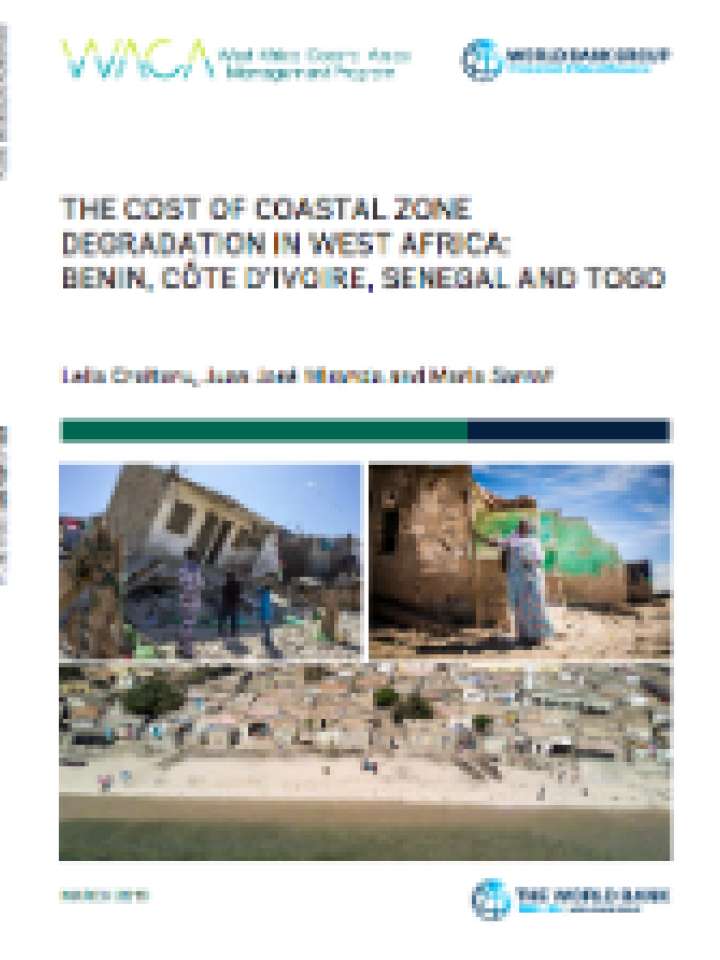The cost of coastal zone degradation in West Africa: Benin, Côte d'Ivoire, Senegal and Togo
This study estimates in monetary terms the Cost of Environmental Degradation (COED) in the coastal areas of Benin, Côte d’Ivoire, Senegal, and Togo. Specifically, it values the impacts of degradation that occur during one year, as a result of three major factors: flooding, erosion, and pollution (from water, air and waste). The final results are expressed in 2017 prices. They are reflected in absolute (USD) and in relative terms, as percentage of the countries’ GDP. Overall, the COED of the four countries is estimated at aboutUSD 3.8 billion, or 5.3 percent of the countries’ GDP in 2017. Flooding and erosion are the main forms of degradation, accounting for more than 60 percent of the total cost. Moreover, coastal degradation causes over 13,000 deaths a year, primarily due to air and water pollution, and to floods.
West Africa’s coastal areas host about one third of the region’s population and generate 56 percent of its GDP. They are home for valuable wetlands, fisheries, oil and gas reserves, and high tourism potential. However, these areas are affected by severe pressures: rapid urbanization along the coast has increased the demands on land, water, and other natural resources; man-made infrastructure and sand extraction have contributed to significant coastal retreat; moreover, climate change and disaster risks are exacerbating these threats. As a result, coastal areas are undergoing alarming environmental degradation leading to deaths (due to floods, air and water pollution), losses of assets (houses, infrastructure) and damages to critical ecosystems (mangroves, marine habitat).
Explore further
